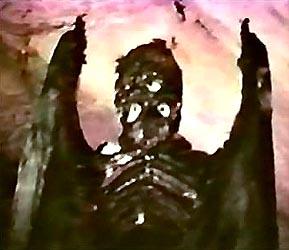President Ignores Rule of Law
This Boston Globe article is perhaps the most important news article of recent times. It makes clear the unprecedented extent to shich President Bush is clearly challenging the separation of powers, and, indeed, the rule of law itself.He is ignoring laws passed by the Congress of the United States and past rulings of the Supreme Court. The only remedy is impeachment.
This Boston Globe article is perhaps the most important news article of recent times. It makes clear the unprecedented extent to shich President Bush is clearly challenging the separation of powers, and, indeed, the rule of law itself.He is ignoring laws passed by the Congress of the United States and past rulings of the Supreme Court. The only remedy is impeachment.
President Bush has quietly claimed the authority to disobey more than 750 laws enacted since he took office, asserting that he has the power to set aside any statute passed by Congress when it conflicts with his interpretation of the Constitution.
Far more than any predecessor, Bush has been aggressive about declaring his right to ignore vast swaths of laws -- many of which he says infringe on power he believes the Constitution assigns to him alone as the head of the executive branch or the commander in chief of the military.
Many legal scholars say they believe that Bush's theory about his own powers goes too far and that he is seizing for himself some of the law-making role of Congress and the Constitution-interpreting role of the courts.
In his signing statements, Bush has repeatedly asserted that the Constitution gives him the right to ignore numerous sections of the bills -- sometimes including provisions that were the subject of negotiations with Congress in order to get lawmakers to pass the bill. He has appended such statements to more than one of every 10 bills he has signed.
''He agrees to a compromise with members of Congress, and all of them are there for a public bill-signing ceremony, but then he takes back those compromises -- and more often than not, without the Congress or the press or the public knowing what has happened," said Christopher Kelley, a Miami University of Ohio political science professor who studies executive power.
The Constitution grants Congress the power to create armies, to declare war, to make rules for captured enemies, and ''to make rules for the government and regulation of the land and naval forces." But, citing his role as commander in chief, Bush says he can ignore any act of Congress that seeks to regulate the military.George W. Bush is putting himself above the constitution.
David Golove, a New York University law professor who specializes in executive-power issues, said Bush has cast a cloud over ''the whole idea that there is a rule of law," because no one can be certain of which laws Bush thinks are valid and which he thinks he can ignore.
''Where you have a president who is willing to declare vast quantities of the legislation that is passed during his term unconstitutional, it implies that he also thinks a very significant amount of the other laws that were already on the books before he became president are also unconstitutional," Golove said.
Golove said that to the extent Bush is interpreting the Constitution in defiance of the Supreme Court's precedents, he threatens to ''overturn the existing structures of constitutional law."
A president who ignores the court, backed by a Congress that is unwilling to challenge him, Golove said, can make the Constitution simply ''disappear."
Bruce Fein, a deputy attorney general in the Reagan administration, said the American system of government relies upon the leaders of each branch ''to exercise some self-restraint." But Bush has declared himself the sole judge of his own powers, he said, and then ruled for himself every time.
''This is an attempt by the president to have the final word on his own constitutional powers, which eliminates the checks and balances that keep the country a democracy," Fein said. ''There is no way for an independent judiciary to check his assertions of power, and Congress isn't doing it, either. So this is moving us toward an unlimited executive power."



0 Comments:
Post a Comment
<< Home